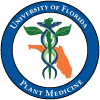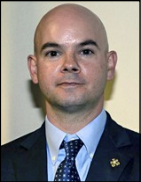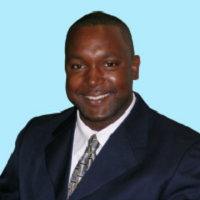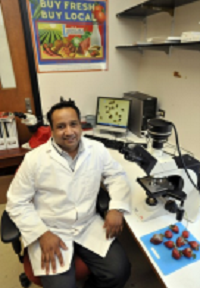Dr. Rafael (Andy) Vega
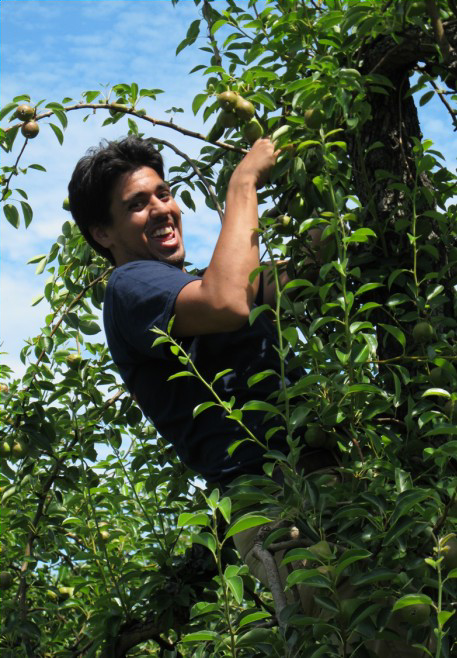 by Nicole Casuso | DPM Spring 2016 Newsletter
by Nicole Casuso | DPM Spring 2016 Newsletter
Q. Briefly describe your academic background.
A. I received my B.S. degree in Computer Engineering from Northeastern University. Since I had received my degree in a very different field of science, I completed pre-requisite coursework at the University of Massachusetts at Amherst, prior to enrolling in the DPM Program.
Q. What is your current occupation and how has your DPM degree aided you the tasks and responsibilities asso-ciated with your position?
A. I currently work as a Crop Consultant, Research Manager, and equal partner of New England Fruit Consultants (NEFCON). Our private company serves five states in the Northeast including Massachusetts, Connecticut, New Hampshire, New York’s Hudson Valley, and Vermont. NEFCON provides consulting services for over 5000 acres of tree fruit. I provide consultations for roughly 2000 acres of fruit trees such as apples, peaches, etc. My DPM background in insect identification diagnosis is used on a daily basis. Inset toxicology and a thorough understanding of their metabolic pathways has been especially useful. Key plant pathology concepts and methods that I learned during the disease clinic internship is invaluable with my job. I do approximately 80% of the initial diagnosis. Additional comprehension of disease control and management is critical. Fundamental knowledge of herbicide interactions and their efficacy also plays an important role in the field. Most of the problems we see in orchards are abiotic, due to cultural practices, phytotoxicity, or deficiencies. Currently, I am in my 6th growing season and the diverse skill set I have from my DPM degree continues to give me a competitive advantage in the field. Overall, I enjoy the immediate impact and substantial influence my advice can have at the commercial level. Continue Reading →
